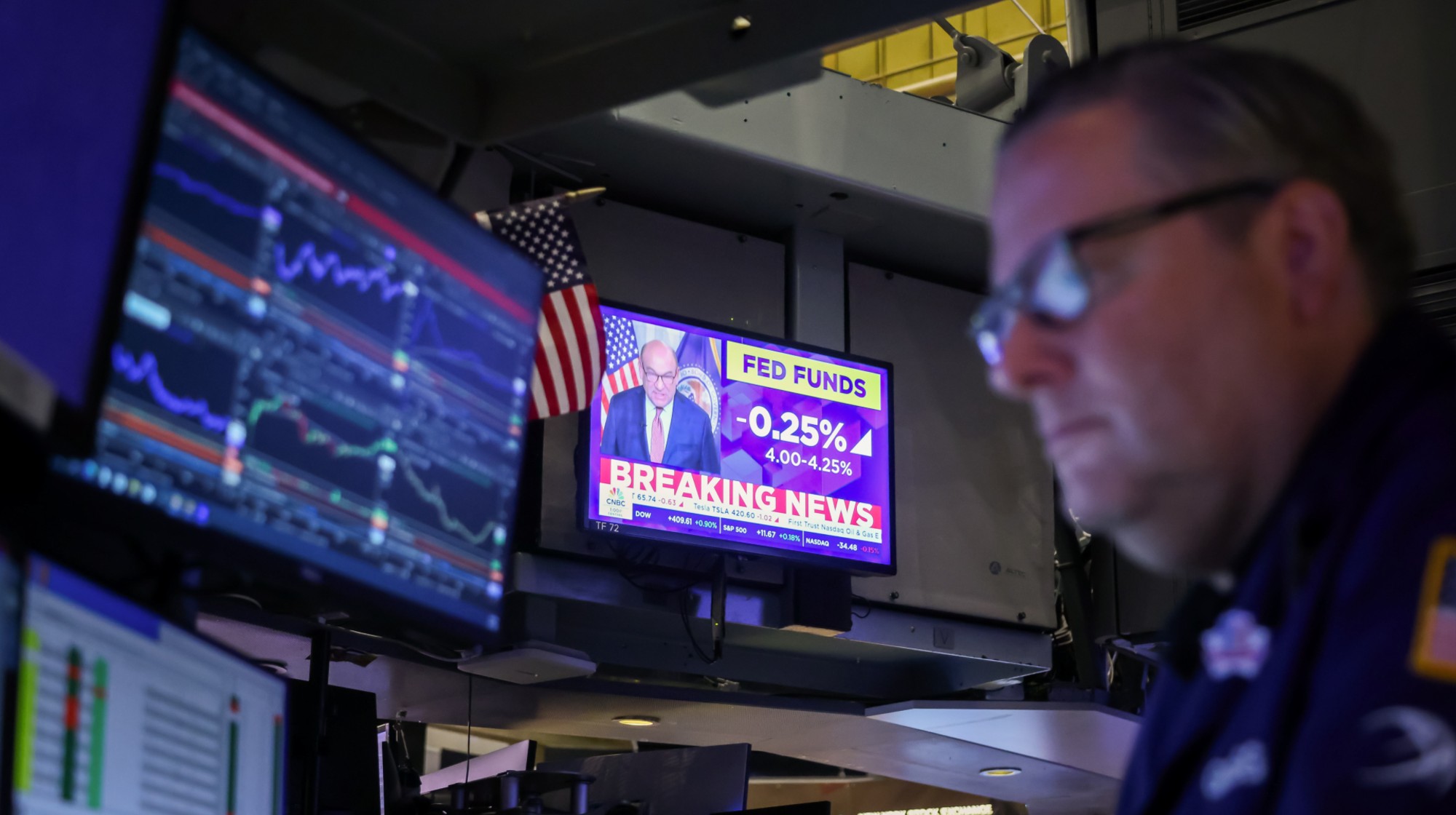Fed cuts interest rates a quarter point
‘The cut suggests a broader shift toward concern about cracks forming in the job market’


A free daily email with the biggest news stories of the day – and the best features from TheWeek.com
You are now subscribed
Your newsletter sign-up was successful
What happened
The Federal Reserve’s Open Market Committee yesterday trimmed its benchmark interest rate by a quarter percentage point, its first cut since President Donald Trump took office. It was the Fed’s first meeting since Trump tried to fire one of its governors, Lisa Cook, as part of his campaign to assert control over the traditionally independent central bank.
Who said what
The Fed judged that “labor-market softness outweighed recent setbacks on inflation,” said The Wall Street Journal. A “narrow majority” of the board also “penciled in at least two additional cuts this year,” suggesting a “broader shift toward concern about cracks forming in the job market.”
All but one of the Fed officials voted for the quarter-point cut. “Lone dissenter” Stephen Miran pushed for cutting a half-point, CNN said, which is “hardly a surprise” since he is on unpaid leave from Trump’s Council of Economic Advisers and the president “fervently” wants sharply lower borrowing costs. Miran is “Trump’s wholly owned subsidiary,” the Journal’s editorial board said, and the president also “owns” this rate cut, “having staked so much on his political assault on the Fed.” Maybe “everything works out fine,” but the rate cut can’t “offset” either of the economic “negatives” the Fed identified yesterday: Trump’s tariffs and immigration crackdown.
What next?
The “well-telegraphed” rate cut, to between 4% and 4.25%, is “unlikely to bring much relief to borrowers,” The Washington Post said. And given the economy’s “stagflation-lite” signals, “what comes next” isn’t clear.
The Week
Escape your echo chamber. Get the facts behind the news, plus analysis from multiple perspectives.

Sign up for The Week's Free Newsletters
From our morning news briefing to a weekly Good News Newsletter, get the best of The Week delivered directly to your inbox.
From our morning news briefing to a weekly Good News Newsletter, get the best of The Week delivered directly to your inbox.
A free daily email with the biggest news stories of the day – and the best features from TheWeek.com
Rafi Schwartz has worked as a politics writer at The Week since 2022, where he covers elections, Congress and the White House. He was previously a contributing writer with Mic focusing largely on politics, a senior writer with Splinter News, a staff writer for Fusion's news lab, and the managing editor of Heeb Magazine, a Jewish life and culture publication. Rafi's work has appeared in Rolling Stone, GOOD and The Forward, among others.
